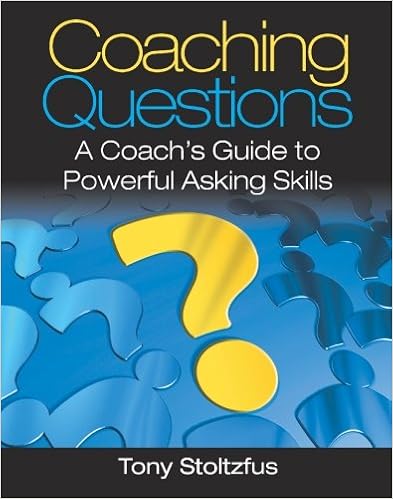Top12 Coaching Books
We like learning about the brain and self-improvement as life coaches. We are always looking for books, podcasts, and other resources that help us reframe the way our clients think. Despite our intense interest in the most recent findings on how the mind functions, it can be challenging to stay up to date with all the available knowledge.
You want people to stretch their limits, but your conversations meant to help them often fall flat or backfire, creating more resistance than growth. Top leadership coach Marcia Reynolds offers a model for using the Discomfort Zone—the moment when the mind is most open to learning—to prompt people to think through problems, see situations more strategically, and transcend their limitations.
In this thoroughly revised and updated edition of his best-selling book The Mindful Coach, expert coach Doug Silsbee presents his practical Septet Model as an ideal tool for conducting coaching conversations with executives, leaders, and other professionals. The model differentiates seven roles (or Voices) that anyone in a coaching role can use when engaging in these learning conversations: Master, Partner, Investigator, Reflector, Teacher, Guide, and Contractor. In this important book, Silsbee illuminates the dynamic relationship among these seven roles and shows how to integrate them into an intelligent strategy that can be applied to any coaching conversation.
The secret of success is not what they taught you in school. What matters most is not IQ, not a business school degree, not even technical know-how or years of expertise. The single most important factor in job performance and advancement is emotional intelligence. Emotional intelligence is actually a set of skills that anyone can acquire, and in this practical guide, Daniel Goleman identifies them, explains their importance, and shows how they can be fostered.
During her multibook investigation into understanding human nature, Gretchen Rubin realized that by asking the seemingly dry question “How do I respond to expectations?” we gain explosive self-knowledge. She discovered that based on their answer, people fit into Four Tendencies: Upholders, Questioners, Obligers, and Rebels. Our Tendency shapes every aspect of our behavior, so using this framework allows us to make better decisions, meet deadlines, suffer less stress, and engage more effectively.
The Element is the point at which natural talent meets personal passion. When people arrive at the Element, they feel most themselves and most inspired and achieve at their highest levels. With a wry sense of humor, Ken Robinson looks at the conditions that enable us to find ourselves in the Element and those that stifle that possibility. Drawing on the stories of a wide range of people, including Paul McCartney, Matt Groening, Richard Branson, Arianna Huffington, and Bart Conner, he shows that age and occupation are no barrier and that this is the essential strategy for transforming education, business, and communities in the twenty-first century.
The single most important skill in coaching is asking powerful questions. In this volume, master coach trainer Tony Stoltzfus joins with 12 other professional coaches to present dozens of valuable asking tools, models and exercises, then illustrates these coaching strategies with over 1,000 examples of penetrating questions. Covering the gamut from basic techniques like options and actions to advanced concepts such as challenge and reframing, Coaching Questions is a book that will find a home on any coach’s short list of handy references.
Drawing on years of experience training more than 10,000 busy managers from around the globe in practical, everyday coaching skills, Bungay Stanier reveals how to unlock your peoples’ potential. He unpacks sevenessential coaching questions to demonstrate how–by saying less and asking more–you can develop coaching methods that produce great results.
If you’re having trouble changing your habits, the problem isn’t you. The problem is your system. Bad habits repeat themselves again and again not because you don’t want to change, but because you have the wrong system for change. You do not rise to the level of your goals. You fall to the level of your systems. Here, you’ll get a proven system that can take you to new heights.
In this highly anticipated new edition, the authors capture their broader experience in applying the Co-Active approach to leadership and human development. The book reflects today’s reality of how coaching has moved beyond its initial focus on life skills to become an integral aspect of successful leadership development. It provides the latest terminology and a variety of fresh coaching examples drawn from the authors’ first-hand experiences with thousands of international coaching trainees and clients.
“Coaches rely far too much on asking open-ended questions,” says Marcia Reynolds. But questions only seek answers–inquiry provides insight. When, instead of just questions, clients hear their thoughts, opinions, and beliefs spoken by someone else, it prompts them to critically consider how their thinking affects their goals. Reynolds cites the latest brain science to show why reflective inquiry works and provides techniques, tips, and structures for creating breakthrough conversations.
Knowing where to spend your marketing dollars was a lot easier in the days when the choices were commercials, magazines, and billboards. Now, life in twenty-first-century America has become one gigantic 24/7 commercial with no limit of ways to get your brand in front of your customers. Has marketing become just a game of throwing darts in the dark, or is it still possible to effectively target your audience?
More and more, psychologists are turning away from an emphasis on self-esteem and moving toward self-compassion in the treatment of their patients—and Dr. Neff’s extraordinary book offers exercises and action plans for dealing with every emotionally debilitating struggle, be it parenting, weight loss, or any of the numerous trials of everyday living.











